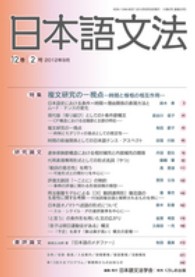- ホーム
- > 洋書
- > 英文書
- > Politics / International Relations
Full Description
The growing presence of China in Africa has drawn increasing scholarly and public attention. With Beijing's announcement of the 'going global' policy in the early 2000s and further institutionalization through the Belt and Road Initiative in 2013, Chinese policy banks and state-owned companies have cooperated with African countries to finance and complete multiple infrastructure projects. These projects, despite their 'Chinese-ness,' demonstrate starkly different development trajectories in different countries. Why do some Chinese-financed and constructed projects develop better than others? And what explains the variation in the effectiveness of different African states with regard to public goods delivery? The Railpolitik: Leadership and Agency in Sino-African Infrastructure Development uses three case studies of Chinese-financed and constructed rail projects to explore the broader phenomenon of the fast-progressing relations between China and Africa and to offer insights into African domestic politics.
Relying primarily on over 250 in-depth interviews and unpublished documents collected during extensive fieldwork from 2014-2019 in Kenya, Ethiopia, Angola, and China, Yuan Wang traces the trajectories of the Standard Gauge Railway in Kenya, the Addis Ababa-Djibouti Railway in Ethiopia, and the Caminho de Ferro de Benguela in Angola, and finds that African political championship is the central factor that determines the outcomes of this type of project. Contrary to the conventional understanding that centralized political institutions such as those in the developmental states are more conducive to rulers' commitment to developmental projects, the book finds that political championship can be generated from leaders' perceived threats of competitive elections in democratic states such as Kenya. These Chinese-financed and constructed projects coincided with African rulers' strategies for political survival, and are therefore instrumentalized politically to demonstrate rulers' performance legitimacy and to fuel their patronage machine.
Oxford Studies in African Politics and International Relations is a series for scholars and students working on African politics and International Relations and related disciplines. Volumes concentrate on contemporary developments in African political science, political economy, and International Relations, such as electoral politics, democratization, decentralization, the political impact of natural resources, the dynamics and consequences of conflict, and the nature of the continent's engagement with the East and West. Comparative and mixed methods work is particularly encouraged. Case studies are welcomed but should demonstrate the broader theoretical and empirical implications of the study and its wider relevance to contemporary debates. The series focuses on sub-Saharan Africa, although proposals that explain how the region engages with North Africa and other parts of the world are of interest.
Series Editors: Nic Cheeseman, Professor of Democracy and International Development, University of Birmingham; Ricardo Soares de Oliveira, Professor of the International Politics of Africa, University of Oxford; Peace Medie, Senior Lecturer, School of Sociology, Politics, and International Studies, University of Bristol.
Contents
Introduction
1: The Railpolitik: Agency of African leaders in Sino-African relations
2: A Kenyan railway? A Kenyatta railway?
3: Revolutionary democracy, developmental state, and capitalism
4: The struggle to reconstruct: A railway of neglect
5: Big brother and small boy? African executive extraversion under Sino-African power asymmetry
Conclusion
Appendix 1. Hypothesis testing and data collection
Appendix 2. Doing fieldwork in Africa
Appendix 3. List of interview questions
Appendix 4. List of interviewees
Bibliography
Index







